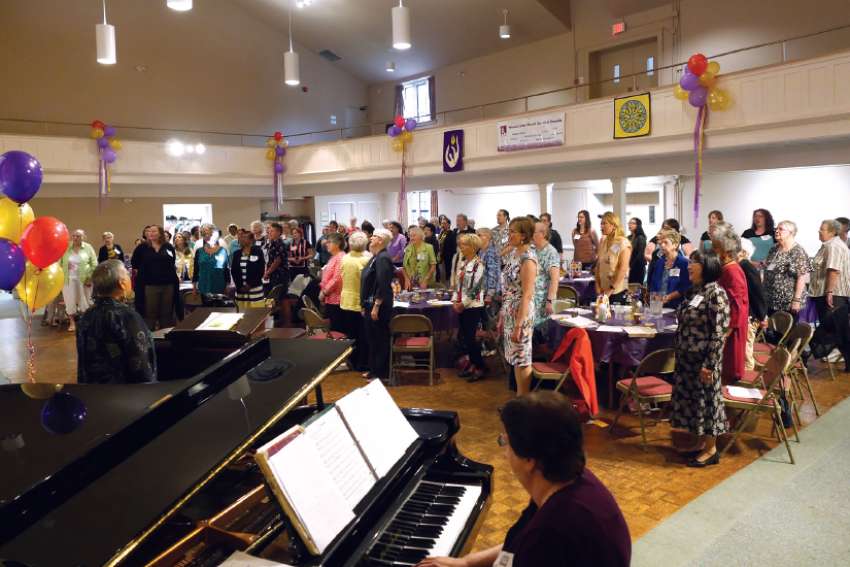The council is reconvening in Lindsay Sept. 29 for one of a number of events being held across Canada in conjunction with the council’s 100th anniversary. (There were earlier events in Toronto and Newfoundland, with another event scheduled for Winnipeg in early November.)
The ecumenical retreat and Truth and Reconciliation Commission Call to Action initiative will take place at Lindsay’s St. Mary’s School, hosted by the local Catholic Women’s League, with guest speakers Catherine MacKeil, executive director, and Anne Taylor, cultural archivist from the nearby Curve Lake reserve. It will include the Kairos Blanket Exercise followed by discussion on future reconciliation actions and response.
The first generation of the WICC arose out of the women’s missionary groups from different Lindsay denominations looking at ways women were touched by injustice. That mandate has continued to this day, said MacKeil, all through an ecumenical lens.
“All the grants and everything we do is in harmony and accordance with the teachings of all the denominations,” said MacKeil from the council’s downtown Toronto office.
There are 18 council members representing 10 denominations, including the Catholic Church, under the Canadian umbrella of the international organization. They met in Toronto to coincide with the 100th anniversary event held in June where members heard speakers talk of the blight of human trafficking.
The council is best known for the World Day of Prayer, which sees Christians from more than 170 countries unite to pray for relevant issues affecting women and children. It’s generally celebrated on the first Friday of March each year, with a different participating nation writing the service. The organization holds an annual Festival Day well in advance of the actual World Day of Prayer to acquaint people with the service and the nation of the women who will be writing that year’s service.
The council’s strength lies in its women, said MacKeil, “about five generations of women” that keep the movement alive. And while prayer is its key, it’s the actions of the grassroots movement that spread the message across the globe.
About $80,000 was raised through last year’s World Day of Prayer in Canada and those funds are used for projects to empower women at home and abroad. About 40 per cent of this year’s 23 grants stay in Canada with the rest going to nations like El Salvador, Kenya and the Philippines to help projects working on food security, education and helping people with HIV/AIDS among others.
“We calculated that last year the grants that we did affected the lives directly of 10,729 people,” said MacKeil. “It’s amazing what you can do with even a $4,000 or $5,000 grant in some places at a grassroots level.”
The multi-faith aspect of the council can lead to some “divided issues,” but MacKeil said the council has generally worked well together.
“We’re focused on what it is that we’re trying to do and that’s to make a difference in people’s lives,” she said.
MacKeil said the council is trying to stay relevant and is taking “a leap” into social media to attract new members.
For more on the council, see wicc.org.


